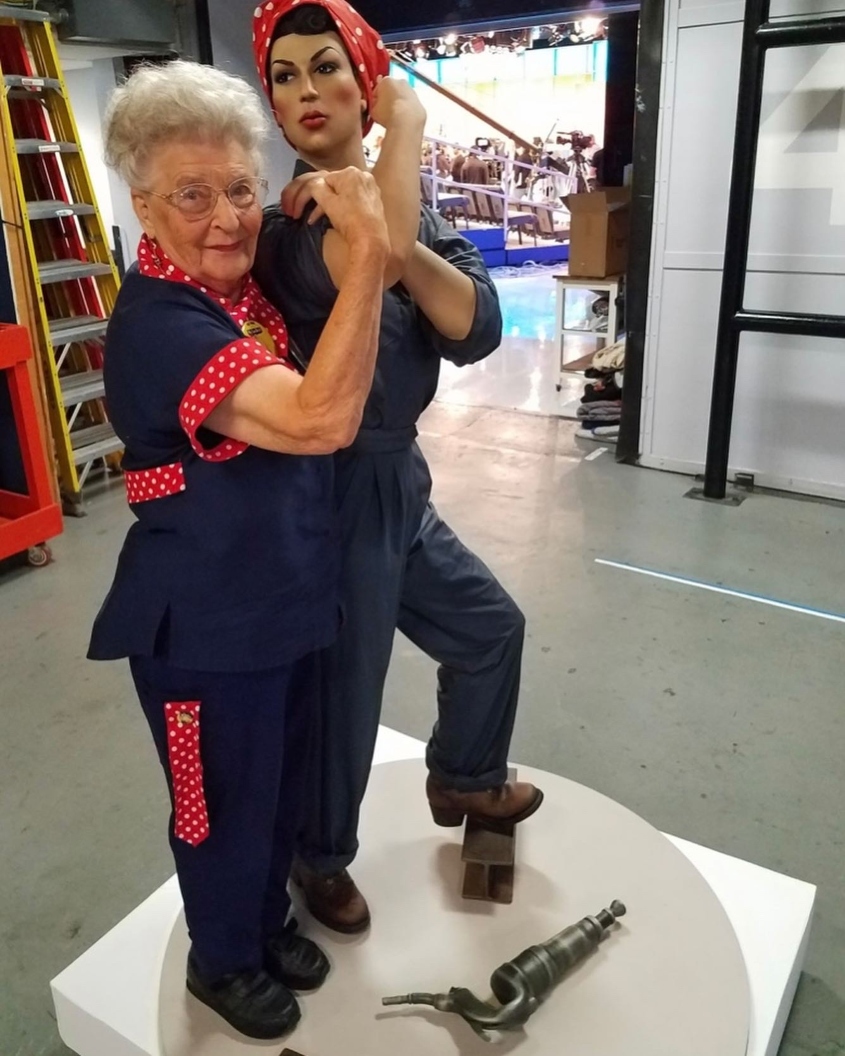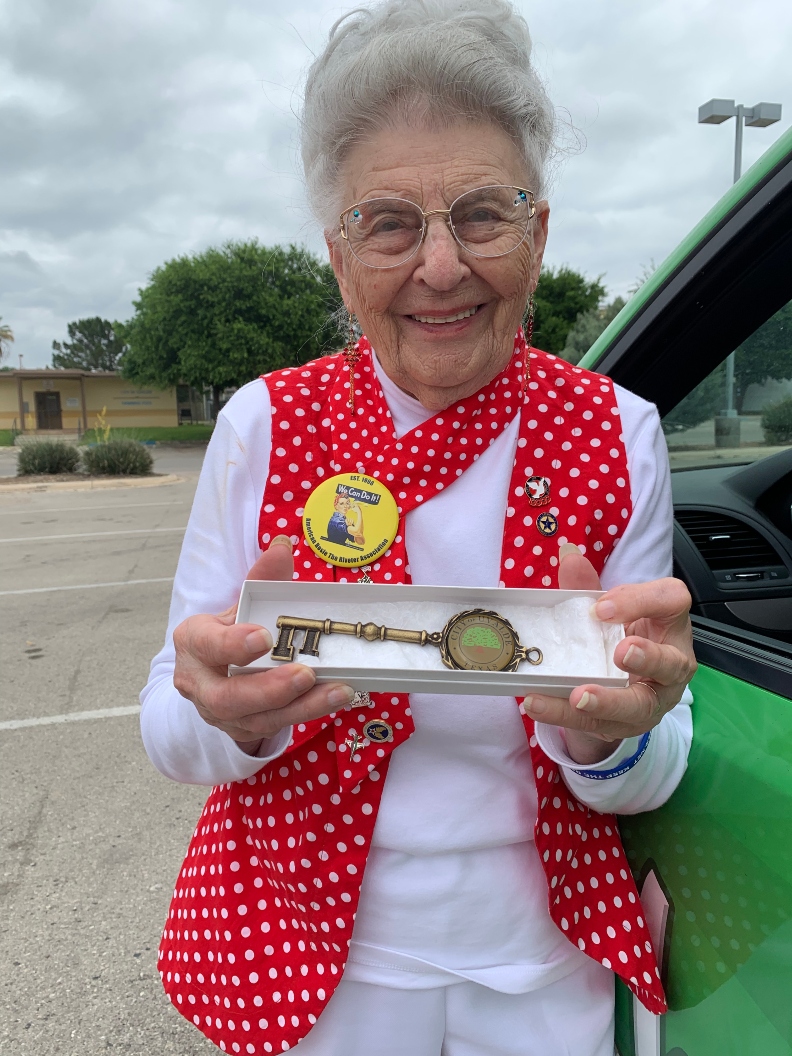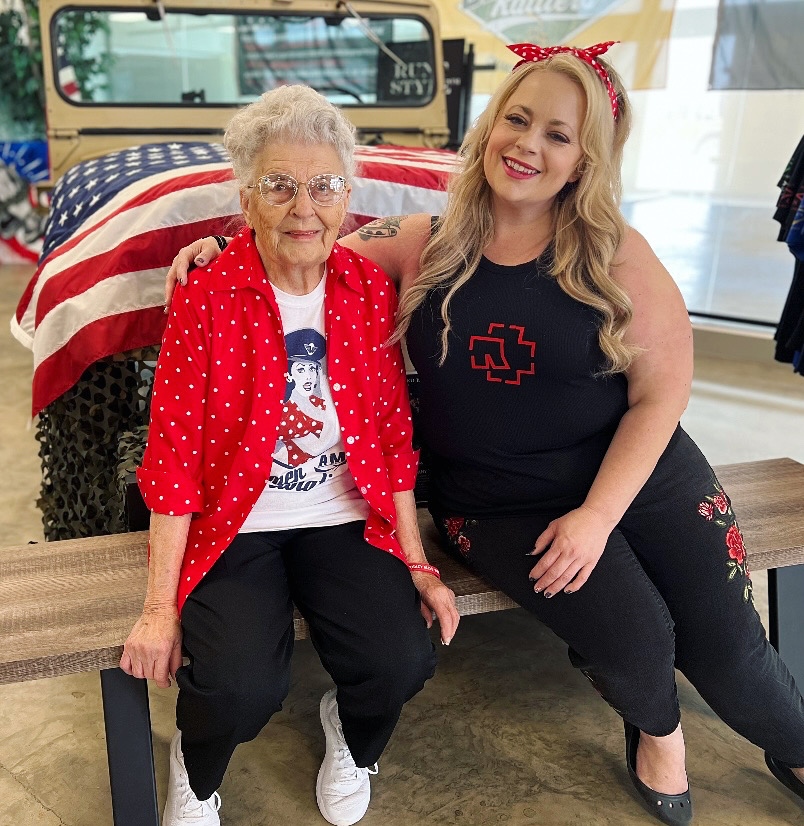An original Rosie the Riveter, Mae Krier fights for recognition of women’s roles during WWII, advocating for empowerment among young girls.

By Tess Harmon
As a teenager, Mae Krier joined millions of women in entering the workforce to help the United States win World War II. Now 97 years old, Krier is on a new mission: to get them credit for it. An original Rosie the Riveter, Krier travels the United States creating awareness, educating and advocating for recognition of women on the home front during the war. In April, Krier made her first visit to Texas and to Austin.
Rosie the Riveter: the iconic image of a woman in a polka dot bandana flexing her arm under the slogan “We Can Do It!”
What many people don’t realize, however, is that she represents millions who entered the workforce during WWII to fill jobs the men fighting left behind.
At 17 years old, Mae Krier became a Rosie when she went to work at Boeing as a riveter herself during the war. The then-teenager helped to build B-17 and B-29 bombers at their factory in Washington. Krier takes pride in her role creating space for future generations of women to enter the workforce.
“When the boys went to the war, of course us young girls, we didn’t want to hang around either” Krier recalls. “My sister and I and a girlfriend decided to go to Seattle for the summer. We loved it. Boeing hired us, and we all stayed through the whole war and we became Rosie the Riveters. I love that memory. I think how proud I am of those women I worked with and what we did to save our country. To help our fighting men. It’s amazing.
“I’m just so proud of the way we have opened doors for other women [and]young people,” she continues. “We’re just so proud of you, what you’ve done with your lives. I think that’s so important. You have the opportunities now where we didn’t have any opportunities. Women were just meant to cook and clean and take care of everybody else.”
Now, Krier works on ensuring that Rosies get recognition for their integral work during the war. She tours the country sharing her story, educating about the millions of women who went to work and fighting for acknowledgement of their sacrifices. Krier became a leading force behind the creation of National Rosie the Riveter Day, which the nation observes annually on March 21. She was also integral to awarding the 2018 Congressional Gold Medal to all Rosie the Riveters.
“After the war was over, we were just turned loose, more or less,” she says. “The men came home to flags and parades, and Rosie came home with a pink slip. It just wasn’t fair they never gave us the recognition that we deserved. So I just started writing letters. I just never quit. At that time, a lot of people didn’t even know who Rosie the Riveter was. I’m just proud of the results we are getting. You know, we get so many people to join us. When you get the numbers, you can get things done. So I’m just so proud of what has taken place. I’m proud of what I had to do with my influence.”

In addition to making sure that the Riveters get their due, Krier continues the fight for equality that originated when she worked at Boeing.
“When I have something that I think is unfair, I fight for it,” she proclaims. “One of the things I started with was equal pay for women for doing the same job. We didn’t get paid the same as men. And we were every bit as good, sometimes better, at riveting and what have you. So that was very unfair. That was one thing I’ve worked hard on. We’re getting there, but we’ve still got a long way to go.”
While touring the U.S. last year, Krier received a lifetime achievement award from the Air Force in Salt Lake City, and Boeing honored her when they sent one of the 6,000 polka dot face masks she sewed during the pandemic into space. Last month, she spoke at the National World War II Museum in New Orleans, and . Next, Krier hopes to see greater representation on the National Mall in D.C., with a Rosie the Riveter statue at the World War II Memorial. She also wants younger generations to take up the fight to continue creating space for this important era in history.
In her travels, Krier speaks with girls about empowerment and representation in STEM. “I like to speak to young girls in school because boys may think because [they’re boys] can do better. I try to make them realize that they’re just as capable. If they decide on something they want to do, it’s not a man’s world anymore. So go for it, I tell them. I tell them, if you want to be an engineer, you can be whatever you want to be. It’s possible for you to be anything now.”

Krier never thought the riveters would become icons. “We weren’t doing it for honors or praise,” she says. “We were doing it to save our country and our brothers and fathers and uncles who were out there.
“When World War Two was declared, every man, woman and child dropped everything to save our country. It wasn’t my job or your job. It was our job, even to the youngest. I just look back and praise what people did.”

